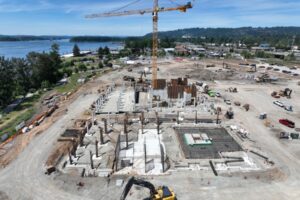The solar eclipse overshadowed most conversations Monday afternoon, but by Monday night, four members of the Camas City Council had moved on to another hot topic: city employee salaries.
“There are just too many moving parts and too many questions right now,” City Councilwoman Melissa Smith commented at Monday night’s meeting, after she and other councilors grappled with a resolution related to salaries and benefits for the city’s non-represented workers.




